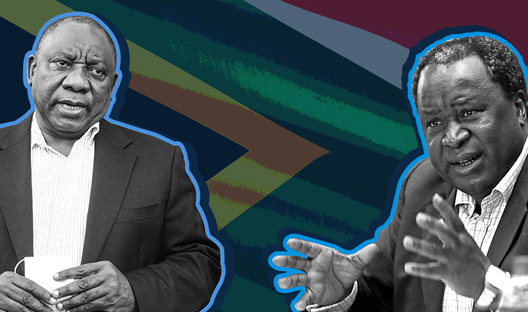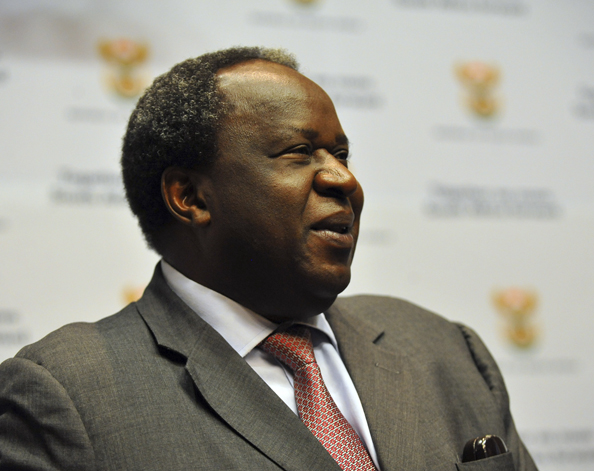Get Focus insights straight to your inbox
Finance Minister Tito Mboweni’s Budget has been received favourably by investors and analysts but has angered trade unions. Continuing his precarious balancing act, Minister Mboweni announced some tough measures, while offering some relief to taxpayers, all the while avoiding the “a” word (austerity).
Investec’s economists, tax professionals and investment experts unpack what the Budget means for consumers and corporates.

Get all Investec's insights on the latest Budget Speech and SONA
Our economists, tax experts, personal finance and investment experts unpack what the latest fiscal measures mean for income, savings and daily expenses of individuals and businesses.
1. The public sector wage bill will finally be cut
The past five years have seen a persistent increase in personal income taxes, including a one percentage point increase in the VAT rate, to maintain a path of fiscal consolidation. Expenditure, however, continued to increase owing to the large public sector wage bill and financial assistance to struggling State Owned Enterprises.
The high tax burden on individuals, combined with low consumer confidence, an increase in unemployment and emigration, has seen a change in fiscal strategy from hiking taxes to contain the wage bill to prevent the budget deficit from rising.
While the Budget incorporated a moderation of the increase in the public sector wage bill, negotiations are still in order. A Public Service Co-ordinating Bargaining Council has been established for issues such as pay progression, cost of living and other benefits.

If government had failed to curtail its consumption expenditure, this would dramatically worsen SA’s already weak economic outlook, further lowering business and consumer confidence and so negatively impacting investment and potential economic growth.
Don’t be too sure SA will be downgraded
Business Maverick Editor Tim Cohen talks to Investec Bank CEO Richard Wainwright and chief economist Annabel Bishop about whether the "sea-change" budget will boost business confidence; if the proposed sovereign wealth fund is a good idea and what the chances are that a state bank will help bank the unbanked.
2. Tax hikes sidestepped
The decision to refrain from raising taxes can be ascribed to the weak economy, which would render more tax increases ineffective. “New tax increases could harm the economy’s ability to recover,” says Finance Minister Tito Mboweni.
Consideration has been given to the fact that the shortfall in revenues have exceeded the amount by which taxes have increased. The slower growth rate in private-sector wages and a stagnation in consumption and business profitability have resulted in significant downward revisions in personal income tax, corporate income tax and VAT receipts over the past five years.
Hiking taxes, instead of cutting expenditure would negatively impact consumers and corporates facing these consumers (retailers), risking higher unemployment.
The net effect would have been a further dwindling in real disposable (after-tax) income growth, which has been a key driver for the slowdown in economic growth in South Africa.
Higher indirect taxes, such as Eskom’s proposed 16% tariff increase would also erode households’ expenditure growth.
The modest tax proposals of the Budget are therefore positive, and “include personal income tax relief through inflation adjustments in all brackets, along with inflation-adjusted increases in the fuel and Road Accident Fund (RAF) levies. The revitalisation of SARS is expected to contribute to increased tax revenue over the medium term .”
Minister Mboweni announced that he anticipates a decrease in corporate taxes in the near future. South Africa’s corporate income tax rate has remained unchanged at 28% for over a decade – way above that of the United States and the United Kingdom, and emerging markets like India.

Reducing the corporate income tax rate will encourage businesses to invest and expand production, improve the country’s competitiveness as an investment destination, and reduce the appeal of base erosion and profit sharing.
3. Economic growth continues to weaken
Economic growth has slowed down consistently from above 3.0% in 2011 to likely around 0.4% y/y last year, and this downwards trend has not yet reversed.
“The risk is that 2020 growth could come out closer to 0% if substantial load shedding and higher electricity tariffs are implemented, and weakening economic growth is also credit negative for SA," says Annabel Bishop, Investec Chief Economist.
"Gross national debt is expected to increase to 71.6% of GDP over the next three years, with above 60% of GDP generally seen as unsustainable for an emerging market," explains Bishop.
4. State-owned enterprises (SOEs) continue to drain state finances
Continued hefty financial assistance to SOEs is not sustainable and has been a key reason for the elevation in SA’s government borrowing trajectory.

The financial performance of SOEs continues to deteriorate owing to weak revenue growth, high compensation costs and an acceleration in debt service costs.
"Over the past 12 years, government has allocated R162bn to SOEs, of which Eskom accounted for 62%. The seven largest SOEs’ total debt amounts to R759.9bn, of which 62% is guaranteed by government," says Tertia Jacobs, Investec Treasury Economist.
"Debt repayments over the next three years are estimated to be R178.1bn, of which R103.5bn is held by Eskom, while South African Airways (SAA) is to receive R16.4bn from government to repay guaranteed debt of R17.3bn and cover interest payments. Government anticipates additional funding will be required to cover restructuring costs," says Jacobs.
Guarantees to SOEs declined marginally from R487.7bn to R484.4bn by March 2020. However, the risk to government has increased as more guarantees have been utilised. Government’s exposure increased from R368.1bn to R385.3bn.
5. Budget is a step in the right direction to avoid a downgrade
The Budget does not offer enough to see SA’s credit rating outlook return to stable, after it was dropped to negative in November last year, highlighting Moody’s intention of downgrading SA within 18 months. However, it does have some factors which could help avoid a downgrade on 27 March.
“This does not mean SA will not remain in line for a downgrade within 18 months of 1 November 2019, but rather that Moody’s will take a large portion of those factors to decide, possibly even stretching the decision into 2021 if SA continues to show incremental efforts to consolidate its finances,” says Bishop.
“SA will likely remain on a negative outlook at Moody’s country review on 27th March. While there are some concerns SA will receive a credit watch, we believe this is very unlikely. A credit watch is used when a credit situation is very fluid and so changing, and the outcome is very uncertain, and SA is seeing slow change in the right direction,” says Bishop.
Furthermore, Moody’s has over a month to digest the Budget ahead of the country review, which is ample time. “Credit watches tend to be only for short periods, typically up to three months. There is no rationale for one to be expected, unless a new event is imminent.”
6. Budget has been received positively by markets
The rand strengthened and markets favoured the outcome of the Budget somewhat, in particular showing relief at the avoidance of any draconian tax hikes.
“There were broad concerns that we were in for an austere budget. The possibility of a combination of both tax increases and cuts in expenditure loomed large. Instead there was personal income tax relief and a modest increase in the fuel levy," says Chris Holdsworth, Chief Investment Strategist, Investec Wealth & Investment.

Market fears of a once-off tax or hike in the VAT proved to be overdone. The sustainability of the debt to GDP forecast will no doubt hinge on the success of the upcoming wage negotiations.




